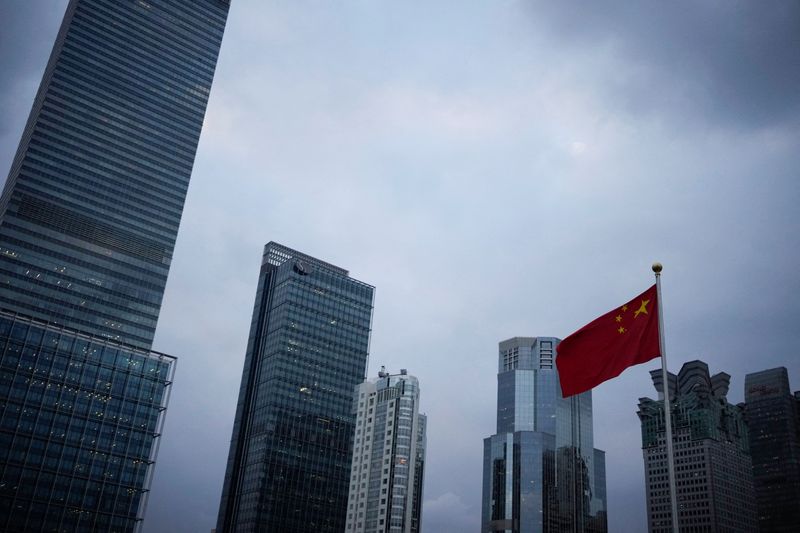By Joe Cash
(Reuters) - China's Premier Li Qiang and dozens of world leaders will meet in Paris on Thursday and Friday to discuss ways to help low-income countries manage their debt burdens and free up funding for climate financing.
As the world's largest bilateral creditor, China is central to talks on making tangible progress in providing debt relief to Zambia, Chad, Ethiopia and Ghana through the Group of 20-led "Common Framework."
WHAT IS THE COMMON FRAMEWORK?
The Common Framework was set up by the G-20 in late 2020 during the COVID-19 pandemic as an initiative to expedite and simplify the process of getting indebted countries back onto their feet.
The aim was to bring together big creditors like China and the traditional group of developed creditor nations, known as the Paris Club, to negotiate restructuring plans with defaulters.
But nearly three years later, it is yet to provide any relief, partly due to disagreements between the rich countries and China, which over the past decade has emerged as a major international creditor.
WHAT IS CHINA'S POSITION ON DEBT RESTRUCTURING?
China wants multilateral lenders like the International Monetary Fund (IMF) and World Bank to absorb some of the losses, which those institutions and many developed nations, notably the United States, are resisting.
The U.S. and European governments have argued that acceding to Beijing's demand would be tantamount to a bailout for China.
A case in point is Zambia, which owes $6 billion to China and has been locked in default for almost three years. The southern African country has been unable to secure further loans from the IMF because Beijing insists multilateral development lenders, which don't usually take haircuts, should participate in debt relief.
The Common Framework requires debtor countries to secure restructuring assurances from any bilateral lenders first and commercial and multilateral lenders second - to Beijing's dismay.
China continues to negotiate with debtor nations on a bilateral basis, urging that debt disposal be dealt with on a "case-by-case" basis despite the Common Framework's aim to standardise access to debt relief.
China's central bank chief Yi Gang reiterated "China is willing to work with all parties to implement the Common Framework for debt disposal," at a gathering of G20 finance ministers and central bank governors at the World Bank and IMF Spring Meetings in Washington in April.
"Official bilateral loans related to China only account for less than 5% of Ghana's external debt," Mao Ning, a Chinese Foreign Ministry spokesperson, told a press conference in Beijing in March, when asked whether China would agree to restructure the $1.9 billion Ghana owes it.
"We call on multilateral financial institutions and commercial lenders, who are the main creditors for developing countries, to participate in developing countries' debt relief efforts," Mao said.
WHY IS CHINA WILLING TO WRITE OFF SOME DEBTS BUT NOT OTHERS?
In January, China's Foreign Minister Qin Gang announced a partial and undisclosed cancellation of the $13.7 billion that Ethiopia has borrowed from China since 2000 while visiting Addis Ababa.
And last August, China waived 23 interest-free loans to 17 African states that had expired at the end of 2021.
China's interest-free loans are funded from its foreign aid budget and are easier to waive.
Interest-free loans account for less than 5% of the $843 billion in Chinese loan commitments to 165 governments globally between 2000 and 2017, according to AidData.
WHAT SUPPORT IS CHINA OFFERING?
In early May, China attended the first meeting of Sri Lanka's creditor nations only as an observer. Japan, India and France initiated the discussions despite China being Sri Lanka's largest bilateral lender, with the island nation owing Chinese lenders $7.4 billion at the end of 2021.
In discussions over Ghana later in May, China took its involvement further and agreed to co-chair a committee of Ghana's official creditors alongside France.
And in Zambia's case, "China has always taken Zambia's debt issues seriously and will jointly work for a better solution," according to Wang Wenbin, another Chinese foreign ministry spokesperson.
WHAT NEXT?
In Paris, analysts expect China to continue to voice support for the Common Framework but for debt relief to be dispensed "case-by-case".

The last time global policymakers met to discuss the Common Framework in Washington, China proposed the IMF should speed up and improve information sharing on debt sustainability analyses.
China will need more coaxing before it agrees to haircuts.